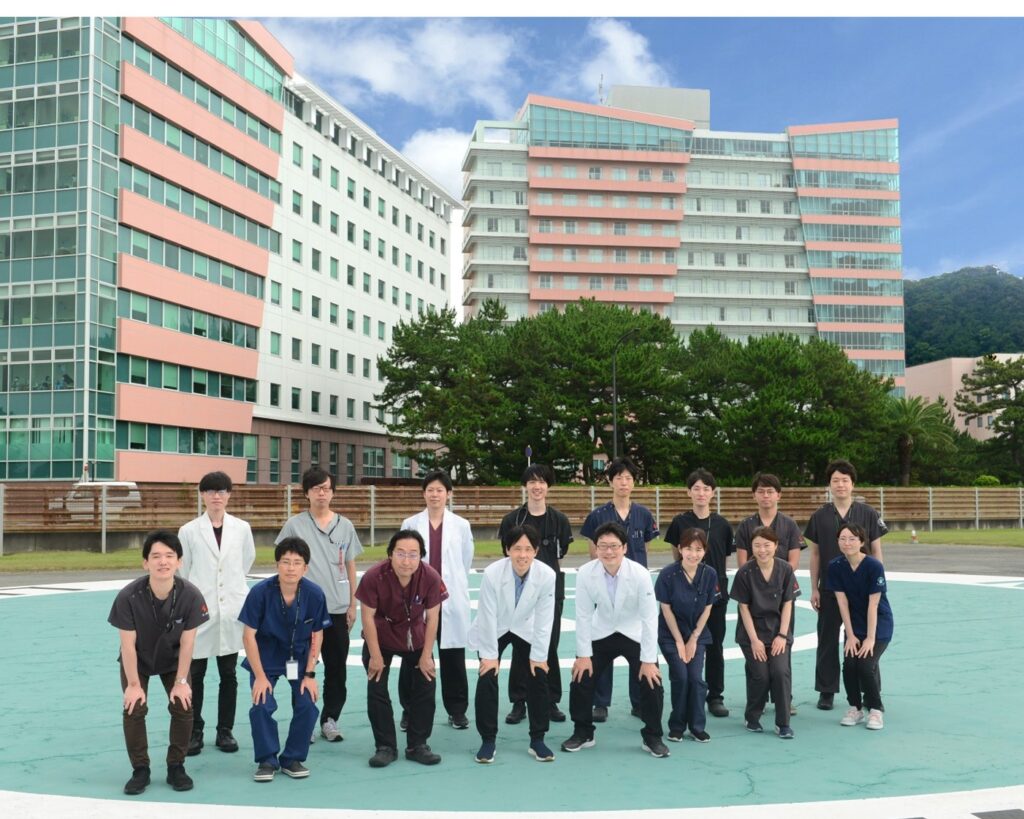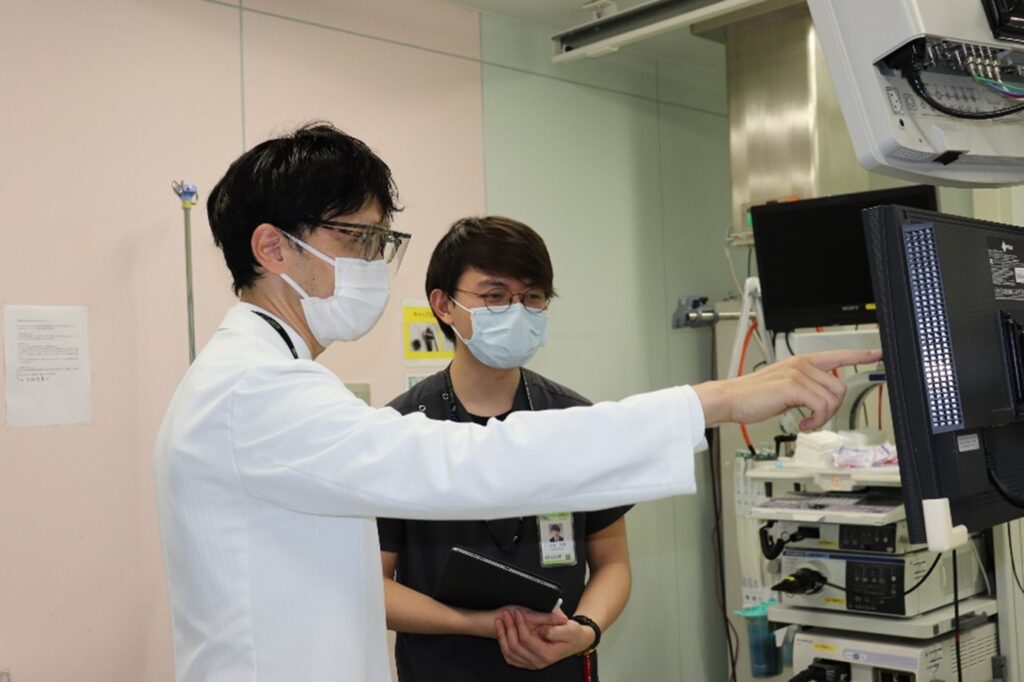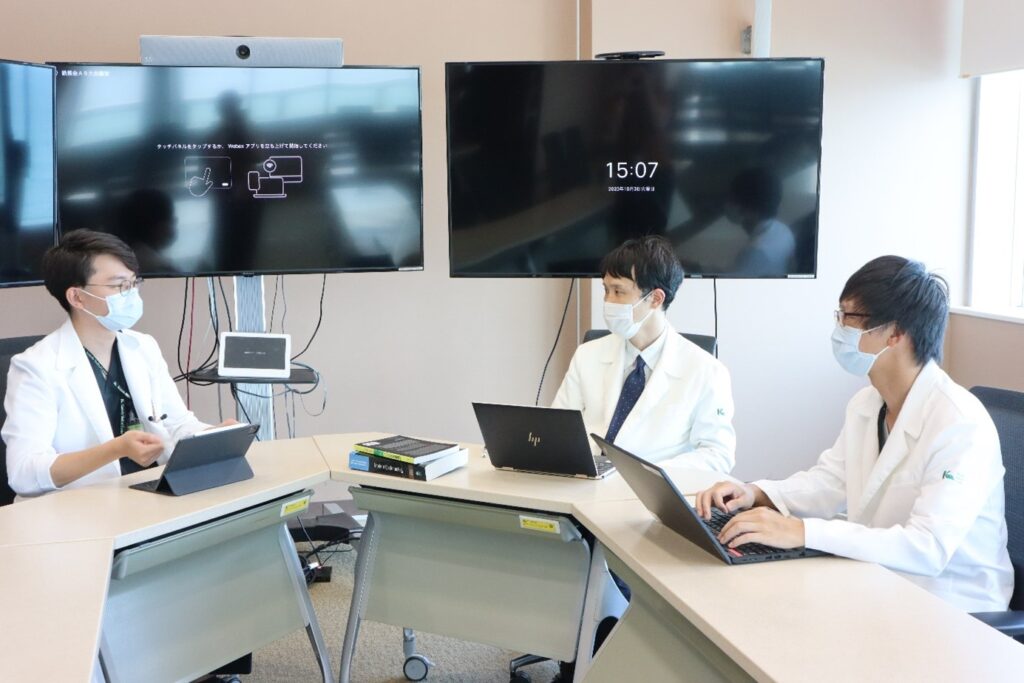Meet the Editor:
Dr Kei Nakashima
Dr Kei Nakashima has been the Director of the Department of Pulmonology at Kameda Medical Center since 2018, where he specializes in pulmonology and lung diseases. He is also an external researcher for Osaka Metropolitan University and Associate Editor of Human Vaccines & Immunotherapeutics Journal. Dr Nakashima is a strong advocate for learning and regularly contributes to the dissemination of knowledge to early career doctors and researchers through the hospital’s website, blogs, and social media channels.
Dr Nakashima’s focus centers around the 3 pillars of medical practice, education, and research. As testament to his expertise, he was awarded ‘Best Teacher at the Pulmonology Department” seven times (2013-2017 and 2022) by residents of Kameda Medical Center and selected as Best Doctors in Japan™ 2022-2023 in the area of Pulmonology by Best Doctors Japan. One of his research projects was also cited by the international guideline of Centers for Disease Control and Prevention.
日本語版のインタビューはこちらから。
Can you introduce yourself, give us a brief description about who you are, and where you are based in the world.
I am originally from Fukuoka Prefecture in Kyushu, Japan. Currently, I am the Director of the Department of Pulmonology at Kameda Medical Center and serve as Chairman of the Department of Internal Medicine. I completed my Doctor of Medicine (M.D.) at Kyushu University in 2006 and obtained my Doctor of Philosophy (Ph.D.) in Department of Public Health, Graduate School of Medicine, Osaka Metropolitan University in 2023.
I am actively engaged as a board-certified specialist and trainer for the Japanese Respiratory Society and the Japanese Association for Infectious Diseases. At the same time, I have been an Associate Editor of Human Vaccines & Immunotherapeutics since 2019.
In a few sentences, please describe the focus of your work.
My work revolves around clinical practice, education, and research in the field of respiratory medicine. Clinically, I address a broad spectrum of respiratory issues including asthma, COPD, pneumonia, interstitial lung diseases, and lung cancer. In terms of education, I am involved in training young physicians at Kameda Medical Center and serve as the principal organizer for the Clinical Respiratory Association for Training and Education (CREATE), where we frequently host webinars.
My clinical research primarily targets respiratory infections, focusing on vaccinations and Pneumocystis pneumonia. I have been deeply engaged in studies evaluating the immunogenicity and effectiveness of influenza vaccines, pneumococcal vaccines, and COVID-19 vaccines. As for Pneumocystis pneumonia, my research spans from its diagnosis to therapeutic approaches.


What sparked your interest in this field and why is it important?
The field of respiratory medicine is captivating due to its vast scope, encompassing everything from acute to chronic phases, infectious diseases to autoimmune disorders, and even malignancies. This allows for a comprehensive and holistic approach to patient care. Vaccines – a primary focus of my clinical research – stand as paramount tools in preventing respiratory infections.
They hold immense significance, especially for the elderly and those with underlying health conditions, who face heightened risks of severe complications and mortality if they contract such infections. Thus, preventing the onset and severity of these diseases through vaccination is of utmost importance.
What lead you to become the Associate Editor of Human Vaccines & Immunotherapeutics and could you briefly share what your day-to-day role entails?
I was approached for the position of Associate Editor by Dr Ronald Ellis, the Editor-in-Chief of Human Vaccines & Immunotherapeutics. This invitation, I believe, was in recognition of a paper I published in the journal in 2018 titled ” Immunogenicity of simultaneous versus sequential administration of a 23-valent pneumococcal polysaccharide vaccine and a quadrivalent influenza vaccine in older individuals: A randomized, open-label, non-inferiority trial”, which garnered significant number of views to the journal.
This study was unprecedented, being the first in the world to report on the immunogenicity and safety of simultaneous vaccination with the 23-valent pneumococcal and quadrivalent influenza vaccines. Our findings are continually cited annually in the influenza recommendations by the Advisory Committee on Immunization Practices (ACIP) of the US Centers for Disease Control and Prevention (CDC).
My initial responsibilities centered around reviewing submitted papers. However, more recently, my role evolved to that of a Handling Editor, where I oversee the journal’s peer review process. This involves conducting preliminary evaluations of submitted manuscripts to ensure they align with the journal’s policies and scope. If deemed suitable, I will delegate the paper to expert reviewers for evaluation. After incorporating the feedback from reviewers and subsequent revisions from authors, I collaborate with the Editor-in-Chief to make the final decision on publication. Through the fulfilment of these responsibilities, I aim to foster a platform within Human Vaccines & Immunotherapeutics where high-quality research can be widely disseminated.

What are your views on the future of medicine? How important is the role of the health research system with regards to the prevention of unexpected mass disease outbreaks such as COVID-19?
I firmly believe that the advancement of personalized medicine tailored to individual patients will be pivotal in the future of healthcare. Leveraging genomic information and AI technologies, we may soon be able to offer treatments best suited to each patient’s unique profile. I anticipate that with the progression of telehealth and remote monitoring, a broader population will gain access to high-quality medical services.
Therefore, the emergence of large-scale infectious diseases like COVID-19 underscores the indispensable role of the medical research infrastructure. In an era of globalization, when a pandemic strikes, if research doesn’t advance swiftly, there’s a tangible risk of uncontrollable global expansion of infections by novel viruses or resistant strains, akin to the COVID-19 pandemic. In this regard, it is vital to have a cohesive medical research system that rapidly and comprehensively links foundational research to clinical studies, generating robust evidence.
What key information do you want to share with our readers regarding respiratory health? Is there anything important we should be aware of to effectively maintain the health of our lungs?
Human Vaccines & Immunotherapeutics is a specialized journal that publishes international research concerning vaccinology and immunotherapy. It collaborates with the International Society for Vaccines (ISV) with the aim of presenting and discussing advancements in vaccinology and immunotherapy. Topics covered in the journal span a wide range including the research and development of new vaccines and immunotherapies, experimental vaccines and novel approaches, vaccines and immunotherapies for non-infectious diseases like cancer, preclinical studies and clinical trials, authorized products and their implementation, impact of approved vaccines and immunotherapies on diseases, vaccine safety and perception, prevention and treatment in developing countries, and epidemiology and pharmacoeconomics.
Pertaining to respiratory diseases, the journal features numerous papers on crucial vaccine research for respiratory infections, such as the influenza vaccine, pneumococcal vaccine, COVID-19 vaccine, and RSV (respiratory syncytial virus) vaccine. For patients with underlying respiratory conditions, the administration of these vaccines is of paramount importance in clinical care. For instance, the influenza and pneumococcal vaccines are strongly recommended for patients with Chronic obstructive pulmonary disease (COPD). Respiratory infections are the primary cause of COPD exacerbations, and patients experiencing such exacerbations face deteriorated respiratory function, decreased quality of life, and increased consumption of medical resources due to hospitalizations. These vaccinations are also vital for patients with lung cancer. To maintain lung health, vaccination against respiratory infections stands as one of the most crucial medical interventions.
Why should researchers submit to Human Vaccines & Immunotherapeutic?
At Human Vaccines & Immunotherapeutics, submissions undergo rigorous peer review by esteemed reviewers with expertise in vaccine research and immunotherapy. Peer review is vital in enhancing the quality of published papers. As an open-access journal, we offer a platform for researchers to reach a wide and diverse audience, resulting in an impressive download count of 2.8 million annually.
Furthermore, it boasts a notable impact factor of 4.8 (2022) that ranks in the Q1 Best Quartile and continues to trend upwards. Publishing in Human Vaccines & Immunotherapeutics provides researchers the opportunity to present their findings in a reputable manner, garner visibility, and potentially have their work read and cited by a large audience.
What advice would you give to early career researchers who are just starting out in this field?
For early-career researchers, it is imperative to maintain a consistent focus on their research. This is especially vital in rapidly evolving fields like vaccine and immunotherapy development, when staying updated with the latest research is essential. Alongside reviewing high-quality research papers, actively seeking opportunities to disseminate your own research findings is crucial. For instance, submitting your work to reputable journals like Human Vaccines & Immunotherapeutics can significantly enhance the visibility and recognition of your research.
Additionally, attending domestic and international conferences to expand your network with other researchers and experts is highly recommended. This will equip you with diverse perspectives and skills. By persistently adopting such strategies, you’ll be well-positioned to elevate your research and professional trajectory to the next level. Lastly, regardless of the demands of a busy professional life, sustaining a genuine passion for research is key. While research demands significant time and effort, the rewards it offers are worthwhile. Establishing a strong foundation and progressing steadily will be the key to achieving long-term success in your research career.

About the Journal
Human Vaccines & Immunotherapeutics publishes international research into vaccinology and immunotherapy, including novel and experimental vaccine exploration.
Human Vaccines & Immunotherapeutics is affiliated with the International Society for Vaccines (ISV).
The aim of Human Vaccines & Immunotherapeutics is to provide a platform to present and discuss developments in vaccinology and immunotherapy. The journal covers the following topics:
Research and development of novel vaccines and immunotherapeutics
Experimental vaccines and novel approaches in vaccination and immunotherapy
Preclinical studies and clinical trials
Licensed products and their use in the field
Impact of licensed vaccines and Immunotherapeutics on disease
